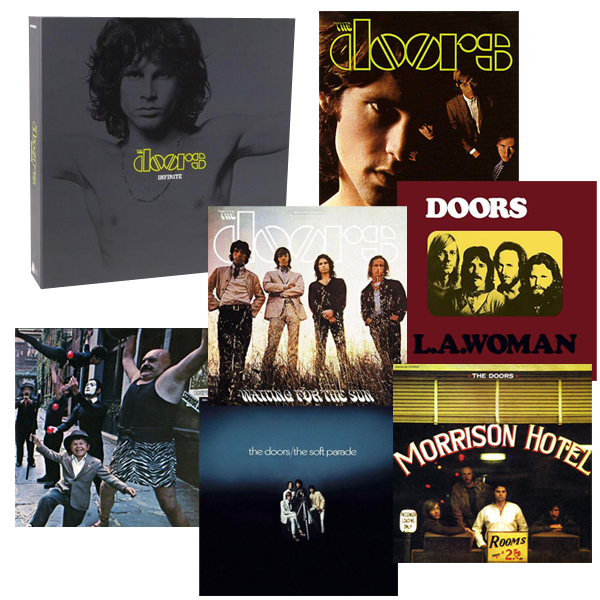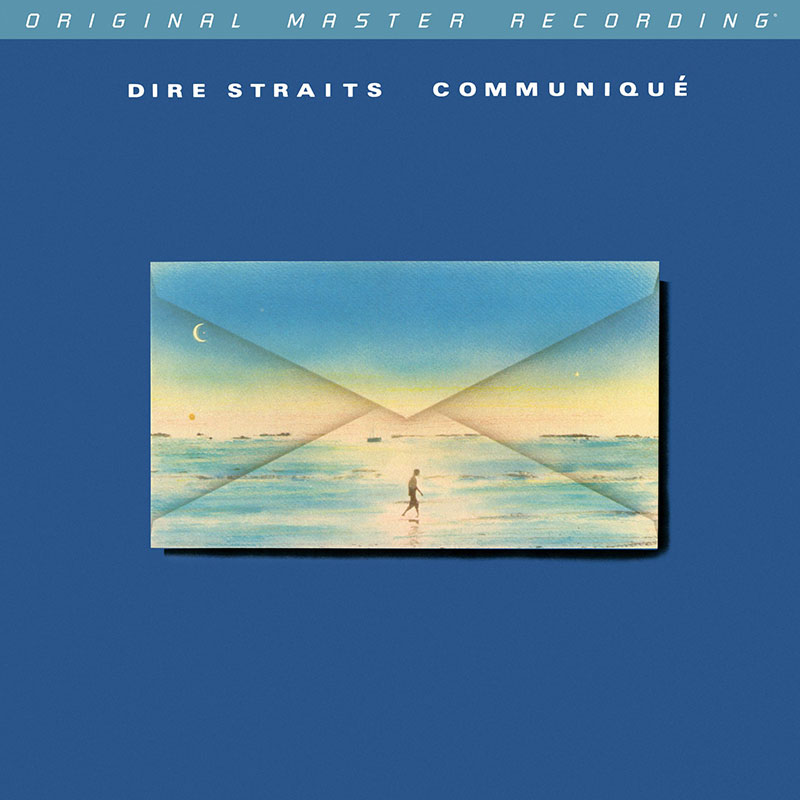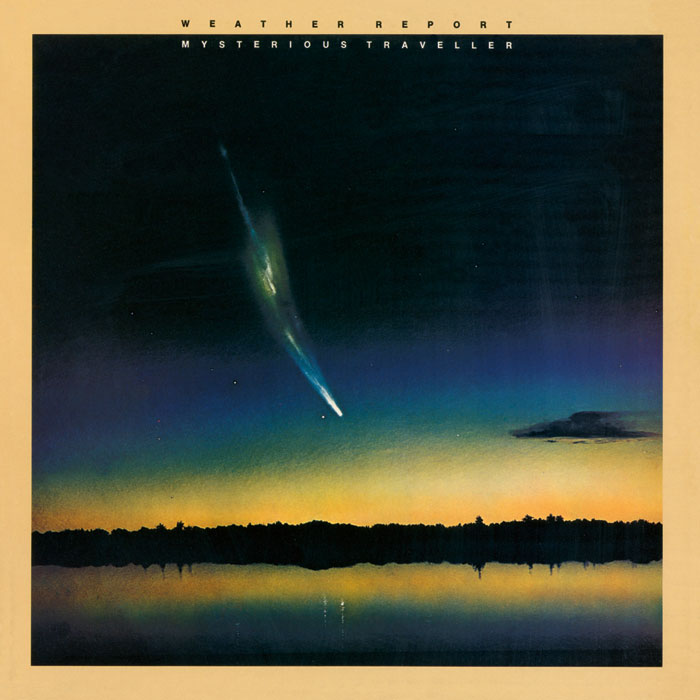Logowanie
OSTATNI taki wybór na świecie
Nancy Wilson, Peggy Lee, Bobby Darin, Julie London, Dinah Washington, Ella Fitzgerald, Lou Rawls
Diamond Voices of the Fifties - vol. 2
Tylko 1000 egzemplarzy!!!
DVORAK, BEETHOVEN, Boris Koutzen, Royal Classic Symphonica
Symfonie nr. 9 / Wellingtons Sieg Op.91
nowa seria: Nature and Music - nagranie w pełni analogowe
Petra Rosa, Eddie C.
Celebrating the art and spirit of music - vol. 3 - Pure
warm sophisticated voice...
Peggy Lee, Doris Day, Julie London, Dinah Shore, Dakota Station
Diamond Voices of the fifthies
Tylko 1000 egzemplarzy!!!
SAMPLER - STS DIGITAL, Buddy Tate, Milt Buckner, Walace Bishop
Jazz Masters - Legendary Jazz Recordings - v. 1
proszę pokazać mi drugą taką płytę na świecie!
Chesky! Niezmiennie perfekcyjny
Winylowy niezbędnik
ClearAudio
Double Matrix Professional - Sonic
najbardziej inteligentna i skuteczna pralka do płyt winylowych wszelkiego typu - całkowicie automatyczna
The Doors
COLLECTION
- The Doors (Stereo Version)
- Release Date: January 4, 1967
- Selections:
- 1. Break On Through (To The Other Side)
- 2. Soul Kitchen
- 3. The Crystal Ship
- 4. Twentieth Century Fox
- 5. Alabama Song (Whisky Bar)
- 6. Light My Fire
- 7.Back Door Man
- 8. I Looked At You
- 9. End Of The Night
- 10. Take It As It Comes
- 11. The End
- Strange Days
- Release Date: September 25, 1967
- Selections:
- 1. Strange Days
- 2. You?re Lost Little Girl
- 3. Love Me Two Times
- 4. Unhappy Girl
- 5. Horse Latitudes
- 6. Moonlight Drive
- 7. People Are Strange
- 8. My Eyes Have Seen You
- 9. I Can?t See Your Face In My Mind
- 10. When The Music?s Over
- Waiting For The Sun
- Release Date: July 11, 1968
- Selections:
- 1. Hello, I Love You
- 2. Love Street
- 3. Not To Touch The Earth
- 4. Summer?s Almost Gone
- 5. Wintertime Love
- 6. The Unknown Soldier
- 7. Spanish Caravan
- 8. My Wild Love
- 9. We Could Be So Good Together
- 10. Yes, The River Knows
- 11. Five To One
- The Soft Parade
- Release Date: June 25, 1969
- Selections:
- 1. Tell All The People
- 2. Touch Me
- 3. Shaman?s Blues
- 4. Do It
- 5. Easy Ride
- 6. Wild Child
- 7. Runnin? Blue
- 8. Wishful Sinful
- 9. The Soft Parade
- Morrison Hotel
- Release Date: February 1, 1970
- Selections:
- Hardrock Cafe
- 1. Roadhouse Blues
- 2. Waiting For The Sun
- 3. You Make Me Real
- 4. Peace Frog
- 5. Blue Sunday
- 6. Ship Of Fools
- Morrison Hotel
- 7. Land Ho!
- 8. The Spy
- 9. Queen Of The Highway
- 10. Indian Summer
- 11. Maggie M?Gill
- L.A. Woman
- Release Date: April 1971
- Selections:
- 1. The Changeling
- 2. Love Her Madly
- 3. Been Down So Long
- 4. Cars Hiss By My Window
- 5. L.A. Woman
- 6. L?America
- 7. Hyacinth House
- 8. Crawling King Snake
- 9. The WASP (Texas Radio And The Big Beat)
- 10. Riders On The Storm
- Bonus Album: The Doors (Mono Version)
- Release Date: Janaury 4, 1967
- Selections:
- 1. Break On Through (To The Other Side)
- 2. Soul Kitchen
- 3. The Crystal Ship
- 4. Twentieth Century Fox
- 5. Alabama Song (Whisky Bar)
- 6. Light My Fire
- 7. Back Door Man
- 8. I Looked At You
- 9. End Of The Night
- 10. Take It As It Comes
- 11. The End
- The Doors - group
The Doors' six Morrison-era albums, all 45 RPM double LPs, in a Deluxe Numbered, Limited Edition Box Set. Box Sets Limited to ONLY 2,500 Numbered Copies each on 200-Gram Vinyl! All remastered from the Original Sources by Doug Sax and The Doors original engineer Bruce Botnick. LPs pressed at 45 RPM by Quality Record Pressings! Booklet included featuring 19 Photographs and a 2,700-Word Essay by The Doors biographer Ben Fong-Torres, esteemed rock journalist and former Rolling Stone editor. All packaged in a Textured, Fold-Over Box! Analogue Productions, taking the original master analog sources, has cut every track from every studio album at 45 RPM, resulting in extended high frequencies, lower noise and, as Fong-Torres notes: "Bottom line, a chronicle of The Doors in the studio, captured with the highest sonic quality possible." "They deserve no less." All of The Doors' legendary albums ? The untoppable self-titled 1967 debut "The Doors", one of rock's most important debuts, "Strange Days", "Waiting For The Sun", "The Soft Parade", "Morrison Hotel", and the visceral "L.A. Woman" ? have been remastered by Doug Sax and The Doors' original engineer Bruce Botnick, and the LPs pressed on 200-gram vinyl at Quality Record Pressings plant (fast gaining popular consensus as the best pressing plant in the world). But this special Doors' reissue features more than just spectacular sonics. Included is a 12-inch specially illustrated booklet with 19 photographs and a 2,700-word essay about the band from Ben Fong-Torres. Fong-Torres, a former editor for Rolling Stone, got the last interview with lead singer Jim Morrison before Morrison's departure in Paris in the spring of 1971, never to return. Portions of that last interview with "lead lizard" Morrison also appear in the included booklet. All of this comes packaged in a textured slipcase box. Both the box and the booklet will also be sold individually so that those who have already purchased individual albums in our 45 RPM Doors reissue series can assemble the set themselves at home. Fong-Torres helped compile one of the most definitive written histories of the band ? "The Doors by The Doors." In that book, Chester Bennington (Linkin Park) calls The Doors, "the most underrated musical powerhouse in rock history. And unlike some that fade away into the abyss, The Doors will always relate to the youth of any era." Girl you gotta love your man. And audiophiles, you'll love The Doors box set from Elusive Disc. The memory of Morrison and co. on you depends; their legacy will never end. Get this box set today before they're gone; into your house The Doors will storm ... Yeah! Technical notes about the recording process by Doors producer/engineer Bruce Botnick: "Throughout the record history of the Doors, the goal between Paul Rothchild and myself was to be invisible, as the Doors were the songwriters and performers. Our duty was to capture them in the recorded medium without bringing attention to ourselves. Of course, the Doors were very successful, and Paul and I did receive some acclaim, which we did appreciate. "If you listen to all the Doors albums, no attempt was made to create sounds that weren't generated by the Doors, except for the Moog Synthesizer on Strange Days, although that was played live in the mix by Jim, but that's another story. The equipment used was very basic, mostly tube consoles and microphones. Telefunken U47, Sony C37A, Shure 56. The echo used was from real acoustic echo chambers and EMT plate reverb units. In those days, we didn't have plug-ins or anything beyond an analogue eight-track machine. All the studios that we used, except for Elektra West, had three Altec Lansing 604E loudspeakers, as that was the standard in the industry, three-track. On EKS-74007, The Doors, we used four-track Ampex recorders and on the subsequent albums, 3M 56 eight-tracks. Dolby noise reduction units were used on two albums, Waiting For The Sun and The Soft Parade. Everything was analogue, digital was just a word. We didn't use fuzz tone or other units like that but created the sounds organically, i.e. the massive dual guitar solo on "When The Music's Over," which was created by feeding the output of one microphone preamp into another and adjusting the level to create the distortion. The tubes were glowing and lit up the control room. "When mastering for the 45-RPM vinyl release, we were successfully able to bake the original master tapes and play them to cut the lacquer masters." - Bruce Botnick, July 2012 "I received test pressings today for both Morrison Hotel and L.A. Woman. I have to tell you that these are the very best pressings I've heard in many, many moons. Great plating and your compound is so quiet that I clearly heard every fade out to its conclusion with no problem. Doug (Sax) and company did a lovely job, the tapes sound pretty damn good for being almost 50 years old and his system is clearly the best...You should be very proud of what you and your troops are doing." - Bruce Botnick, The Doors producer/engineer
































